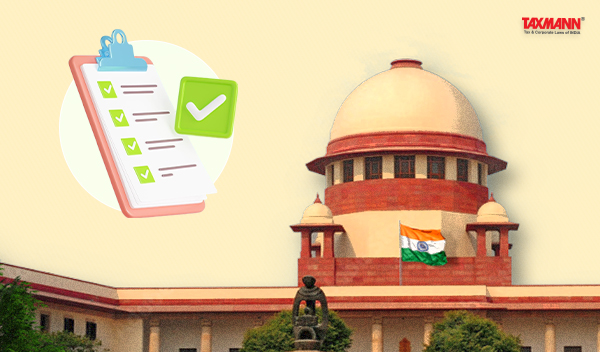Delisting of Equity Shares Under Approved Resolution Plan Would Be Governed by IBC; Overrides SEBI Delisting Norms | HC
- Blog|News|Insolvency and Bankruptcy Code|
- 3 Min Read
- By Taxmann
- |
- Last Updated on 23 December, 2024

Case Details: Harsh Mehta v. Securities and Exchange Board of India - [2024] 169 taxmann.com 129 (HC-Bombay)
Judiciary and Counsel Details
- M.S. Sonak & Jitendra Jain, JJ.
-
Ashmita Goradia & Vijay Katariya for the Petitioner.
-
Mustafa Doctor, Sr. Adv., Suraj Choudhary, Akash Jain, Abhishek Nair, Rohan Kadam, Ms Aditi Bhansali & Tejas Raghav for the Respondent.
Facts of the Case
In the instant case, the administrator appointed for company ‘R’ filed a petition before the NCLT for admitting ‘R’ to CIRP, and the NCLT admitted the petition. The petitioner purchased some shares of ‘R’. The Resolution plan was submitted, which assigned nil value to all equity shareholders and required subsequent delisting and cancellation of all existing shares of ‘R’.
The NCLT sanctioned the said plan vide the impugned order, holding that the liquidation value of equity shareholders was nil and equity shareholders would not be entitled to any payment. The Stock exchanges issued Circulars suspending trading in shares of ‘R’.
The petitioner filed an instant petition challenging vires of Impugned Regulations i.e. Regulation 3(2)(b)(i) of the SEBI Regulations and the impugned order on the grounds that Impugned Regulations denied protection of Delisting Regulations to any delisting of equity shares of a listed company pursuant to a resolution plan approved under section 31 and same was ultra-vires provisions of SEBI Act.
High Court Held
The High Court observed that the delisting of equity shares pursuant to approval of a plan under IBC would be governed by the provisions of the IBC and regulations made thereunder. Further, the IBC is a complete code containing a non-obstante clause, impugned Regulation, i.e. Regulation 3(2)(b)(i), providing that Delisting Regulations shall not apply in case of delisting of equity shares pursuant to a resolution plan approved under section 31 of IBC and thus, could not be regarded as ultra-vires SEBI Act or rules made thereunder.
The High Court held that the provisions of the IBC/CIRP Regulations would prevail, given that the IBC is later legislation that was given an overriding effect. Thus, the impugned regulations could not be styled as capricious, irrational, or excessively disproportionate, and the instant petition was to be dismissed.
List of Cases Reviewed
- Vishwasrao Chudaman Patil v. Lokayukta, State of Maharashtra AIR 1985 Bom 136
- B.S.E. Brokers’ Forum, Bombay v. Securities and Exchange Board of India AIR 2001 SC 1010, (para 61) followed.
List of Cases Referred to
- Ghanashyam Mishra and Sons Private Limited v. Edelweiss Asset Reconstruction Company Limited and others (2021) 9 SCC 657 (para 16)
- Jaypee Kensington Boulevard Apartments Welfare Association and others v. NBCC (India) Limited and others (2022) 1 SCC 401 (para 18)
- Innoventive Industries Limited v. ICICI Bank and another (2018) 1 SCC 407 (para 23)
- Swiss Ribbons Private Limited and another v. Union of India and others (2019) 4 SCC 17 (para 23)
- Shilpa Stock Broker Pvt. Ltd. and another v. SEBI 2012 SCC OnLine Bom 58 (para 55)
- Franklin Templeton Trustee Services (P) Ltd v. Amruta Garg and others (2021) 9 SCC 606 (para 56)
- Tamil Nadu and another v. P Krishnamurthy and others (2006) 4 SCC 517 (para 60)
- Vishwasrao Chudaman Patil v. Lokayukta, State of Maharashtra and others AIR 1985 Bom 136 (para 61)
- B.S.E. Brokers’ Forum, Bombay and others v. SEBI and others AIR 2001 SC 1010 (para 61)
- Democratic Reforms (Electoral Bond Scheme) v. Union of India (2024) 5 SCC 1 (para 74).
Disclaimer: The content/information published on the website is only for general information of the user and shall not be construed as legal advice. While the Taxmann has exercised reasonable efforts to ensure the veracity of information/content published, Taxmann shall be under no liability in any manner whatsoever for incorrect information, if any.

Taxmann Publications has a dedicated in-house Research & Editorial Team. This team consists of a team of Chartered Accountants, Company Secretaries, and Lawyers. This team works under the guidance and supervision of editor-in-chief Mr Rakesh Bhargava.
The Research and Editorial Team is responsible for developing reliable and accurate content for the readers. The team follows the six-sigma approach to achieve the benchmark of zero error in its publications and research platforms. The team ensures that the following publication guidelines are thoroughly followed while developing the content:
- The statutory material is obtained only from the authorized and reliable sources
- All the latest developments in the judicial and legislative fields are covered
- Prepare the analytical write-ups on current, controversial, and important issues to help the readers to understand the concept and its implications
- Every content published by Taxmann is complete, accurate and lucid
- All evidence-based statements are supported with proper reference to Section, Circular No., Notification No. or citations
- The golden rules of grammar, style and consistency are thoroughly followed
- Font and size that’s easy to read and remain consistent across all imprint and digital publications are applied



 CA | CS | CMA
CA | CS | CMA
